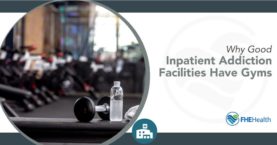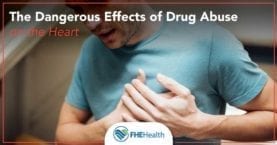Many people who enter a rehab facility or undergo treatment for a mental health condition strive to better themselves physically. Embarking on a physical and mental wellness journey simultaneously can help a person redirect their focus and occupy their mind. Besides the opportunity to become healthier overall, ... Read More
Rehab Explained
Seeking treatment for mental health or substance abuse can be confusing. What is the treatment like? Why are there groups? What methods are used to treat my condition? These are all common concerns for patients seeking rehabilitation and we want to answer them in this section. Our articles are informed by our licensed mental health and substance abuse facility and help you understand how a rehab facility operates and treats the patient.
Why Good Inpatient Addiction Facilities Have Gyms
Is All Therapy Equal? How to Gauge Quality
Mental health services have long seemed out of reach for the average person. In the last few years, technology has had a significant impact on how people access the services they need, putting everything from groceries to contracting services just a couple of clicks away. Now, as people become more aware of how their ... Read More
The Dangerous Effects of Drug Abuse on the Heart
How Drug Abuse Damages the Heart Can drug abuse damage the heart? The answer to that is yes, according to the National Institute on Drug Abuse. The type of impact ranges widely, from creating abnormal heart rates to putting you at risk for a heart attack. Injections themselves pose risks as they damage the veins and ... Read More
Identifying and Treating Avoidant Personality Disorders
Avoidant personality disorders are more prevalent in the United States than you might think. The condition affects approximately 1.5%-2.5% of Americans, with some studies identifying women as being at a higher risk for the disorder. Find out how to identify symptoms of avoidant personality disorder (AVPD) and what ... Read More
What Do Rehab Programs Mean by “Spirituality”?
When you first decide to detox and move away from your addiction, one word you might hear regularly is "spirituality." You will also hear references to a "higher power." Spirituality and addiction have a connection — spirituality is a strong force to fight addiction. Of course, this could be a problem if you're an ... Read More
Getting Through Heroin Withdrawal Symptoms
Updated March 8th, 2020 Heroin is known for its extremely addictive qualities and is notoriously difficult to quit. There are a number of harrowing, even exaggerated, depictions of withdrawal in TV, film and other media. Consequently, heroin and other opiates have developed a reputation for being very difficult to ... Read More
5 Touted Benefits of a “Sensory Deprivation Tank”
Does sensory deprivation tank therapy really help reduce depression and anxiety? Float therapy is an alternative treatment for mild depression and anxiety that aims to reduce stress, anxiety, depression, and even some medical conditions. But, what does science say about the benefits of short-term sensory ... Read More
Egosyntonic and Egodystonic Behaviors in Psychotherapy
Updated June 12, 2023 Addiction is a complex disease that impacts all aspects of your life. It affects you physically, emotionally, spiritually and psychologically, causing you to change how you think, feel and act. When you're struggling with addiction to a particular substance like heroin, alcohol, opiates, or ... Read More

















